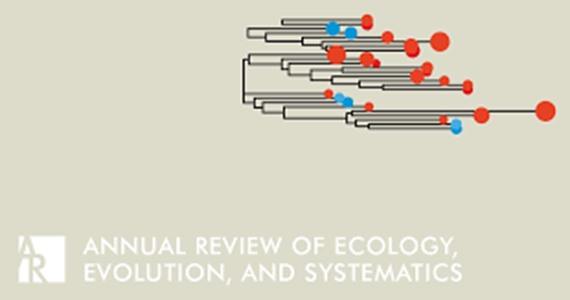古代入侵者:古遗传学工具如何帮助识别和理解过去的生物入侵
IF 11.2
1区 生物学
Q1 ECOLOGY
Annual Review of Ecology, Evolution, and Systematics
Pub Date : 2021-08-10
DOI:10.1146/annurev-ecolsys-012021-100938
引用次数: 2
摘要
过去的生物入侵有助于塑造我们今天的生物多样性。对于许多岛屿生态系统来说,它们是陆地生命的唯一来源。与此同时,生物入侵,特别是由人类活动引起的入侵,是保护本地物种的一个主要问题。因此,了解生物入侵的驱动因素以及入侵在不同生态系统中所扮演的角色至关重要。分子工具为重建生物入侵、其驱动因素及其影响提供了有价值的数据。最近的技术发展进一步增加了分子工具追踪生物多样性过去变化的潜力。在这里,我们提供了一个关于这些分子工具如何影响我们对过去生物入侵的理解的观点,并讨论了它们如何进一步帮助塑造我们对生物入侵的理解和管理。预计《生态、进化和分类学年度评论》第52卷的最终在线出版日期为2021年11月。修订后的估计数请参阅http://www.annualreviews.org/page/journal/pubdates。本文章由计算机程序翻译,如有差异,请以英文原文为准。
Ancient Invaders: How Paleogenetic Tools Help to Identify and Understand Biological Invasions of the Past
Past biological invasions have contributed to shaping our present day biodiversity. For many island ecosystems, they are the only source of terrestrial life. At the same time, biological invasions, in particular when caused by human activity, are a major concern for the conservation of native species. It is therefore essential to understand the drivers of biological invasions as well as the role invasions have played in different ecosystems. Molecular tools have provided valuable data to reconstruct biological invasions, their drivers, and their impacts. Recent technological developments have further increased the potential of molecular tools to track past shifts in biodiversity. Here, we provide a perspective on how such molecular tools have influenced our understanding of past biological invasions and discuss how they may further help to shape our understanding and management of biological invasions. Expected final online publication date for the Annual Review of Ecology, Evolution, and Systematics, Volume 52 is November 2021. Please see http://www.annualreviews.org/page/journal/pubdates for revised estimates.
求助全文
通过发布文献求助,成功后即可免费获取论文全文。
去求助
来源期刊
CiteScore
19.90
自引率
1.70%
发文量
21
期刊介绍:
The Annual Review of Ecology, Evolution, and Systematics is a scholarly publication that has been in circulation since 1970. It focuses on important advancements in the areas of ecology, evolutionary biology, and systematics, with relevance to all forms of life on Earth. The journal features essay reviews that encompass various topics such as phylogeny, speciation, molecular evolution, behavior, evolutionary physiology, population dynamics, ecosystem processes, and applications in invasion biology, conservation, and environmental management. Recently, the current volume of the journal transitioned from a subscription-based model to open access through the Annual Reviews' Subscribe to Open program. Consequently, all articles published in the current volume are now available under a CC BY license.

 求助内容:
求助内容: 应助结果提醒方式:
应助结果提醒方式:


